Snowden says GCHQ's Smurf programs can tap, hack, and control any smartphone
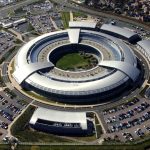
In an interview with BBC Panorama, Edward Snowden made further revelations about the capabilities of government agencies. Having blown the whistle on the NSA, Snowden has also shed light on the activities of the UK equivalent, GCHQ.
In tonight's interview, the former NSA contractor spoke of the agency's "Smurf Suite" -- a collection of tools that can be used to intercept and control smartphones, even if they're turned off. Named after the blue cartoon characters, the Smurf tools can be deployed via encrypted text message without alerting the handset owner.
Leaked documents show UK Karma Police program was just as intrusive as the NSA -- and spied on the US
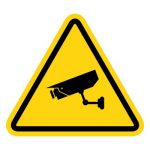
There have been countless stories about the activities of the NSA and the revelations by Edward Snowden continue. A new batch of documents leaked by the former NSA contractor show that GCHQ ran a program called Karma Police that was used to "build a web-browsing profile for every visible user on the internet".
If that sounds a little sinister, that's because it is. You would think that we might have become hardened to this sort of thing, but it is still comes as a slight surprise to learn of the extent of surveillance that has been taking place. The UK government has been building profiles of web users around the world based on their browsing histories (news, porn, social networking, and so on), monitoring email and Skype communication and more for the last seven years.
How to find out if GCHQ and the NSA spied on you, and how to complain
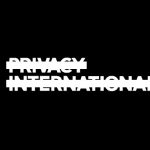
Privacy International has created a platform through which individuals and organizations can file complaints with GCHQ about surveillance of phone calls and internet usage. The charity has long concerned itself with government surveillance, particularly the sharing of data between the NSA and GCHQ.
The legality of mass surveillance has been questioned by many, and it has already been determined that human rights organization Amnesty International was illegally spied on. Edward Snowden's NSA revelations have led to a huge increase in awareness of privacy issues, and now Privacy International is making it easier to find out if you were spied on, and to lodge an official complaint.
Amnesty International seeks explanation for 'absolutely shocking' government surveillance
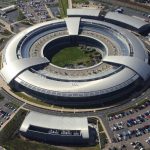
A court recently revealed via email that the UK government had been spying on Amnesty International. GCHQ had put Amnesty under surveillance -- despite this having previously been denied -- and now the human rights organization wants answers.
In a letter to the UK Prime Minister David Cameron, Amnesty International asks for an explanation for the surveillance. The Investigatory Powers Tribunal's (IPT) email made it clear that GCHQ had been intercepting, accessing and storing communications, something that Amnesty International's Secretary General, Salil Shetty believes "makes it vividly clear that mass surveillance has gone too far".
UK government illegally spied on Amnesty International
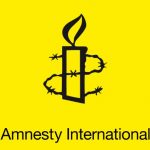
A court has revealed that the UK intelligence agency, GCHQ, illegally spied on human rights organization Amnesty International. It is an allegation that the agency had previously denied, but an email from the Investigatory Powers Tribunal backtracked on a judgement made in June which said no such spying had taken place.
The email was sent to Amnesty International yesterday, and while it conceded that the organization was indeed the subject of surveillance, no explanation has been offered. It is now clear that, for some reason, communications by Amnesty International were illegally intercepted, stored, and examined. What is not clear is when the spying happened, what data was collected and, more importantly, why it happened.
GCHQ does not engage in indiscriminate blanket surveillance
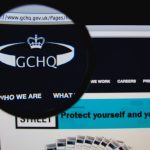
When Edward Snowden blew the whistle on the activities of the NSA, it sparked a global interest in how internet traffic is monitored. The UK's Intelligence and Security Committee of Parliament today published a report into online surveillance carried out by GCHQ, MI5 and MI6 after an 18-month inquiry.
Among the findings is the conclusion that surveillance is legal, but an overhaul is needed to increase transparency. The suggestion that GCHQ's interception of emails "does not equate to blanket surveillance, nor does it equate to indiscriminate surveillance" is likely to be met with skepticism. But what's likely to raise more eyebrows is the revelation that the agency has apparently managed to crack encryption.
Gemalto confirms hack on network, but says it didn't result in massive theft of SIM card keys

Gemalto, the world’s largest producer of SIM cards which reportedly had its encryption keys stolen by the NSA and GCHQ spying agencies, announced today that its network was hacked, but it didn’t result in massive theft of keys used to encrypt conversations, messages and data traffic, a conclusion it reached after a thorough investigation.
The Netherlands-based SIM manufacturer says that it noted sophisticated attacks on its networks between 2010 and 2011 that appear to have been carried out by the aforementioned intelligence agencies. But the company notes that the agencies couldn’t get in far enough to get access to SIM encryption keys.
Despite hack by NSA and GCHQ, Gemalto's SIM cards are safe, says the company
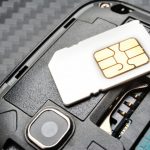
Gemalto, the world’s largest producer of SIM cards, which made headlines last week for reportedly gettings its encryption keys stolen by the mighty NSA and GCHQ spying agencies, says its SIM cards, as well as banking cards, passports and other products are secure, a conclusion it reached after conducting a round of initial investigations.
The Intercept published a detailed report last week based on confidential documents it gleaned from whistleblower Edward Snowden, in which it revealed that America’s NSA and UK’s GCHQ hacked the systems at Gemalto to steal the encryption keys. By getting access to the keys, the agencies were able to directly tap phone calls, and monitor messages, among other things, on millions of mobile phones.
NSA and GCHQ hacked world's biggest SIM card manufacturer to steal your data

In mid-2013, Edward Snowden revealed that the government-backed agency NSA monitored everything happening on the Internet, including spying on individuals' phone calls, messaging, and emails to glean information and pinpoint suspicious activities in an attempt to stop the growing terrorist acts.
Since the revelations -- which changed everyone's perspective on privacy -- the leaked information from Snowden and acceptance from major technology companies have given us an understanding of how the NSA managed to get our data from the services we heavily rely on. Essentially, either providers agreed to turn over our data or the NSA found another way, a backdoor, to obtain it. But how it manage to tap our phone calls was mostly unclear. Last year, Vodafone did acknowledge that it allowed the NSA to place surveillance tools inside its data centers. But as it turns out, the agency had more ways to log our phone activities.
Did the NSA spy on you and pass information to GCHQ in the UK? Here's how to find out
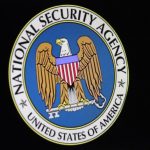
It is just about impossible to be an internet user without being aware of the surveillance that has been carried out by the NSA; cheers for the tip, Mr Snowden. While it was the NSA's activities that hit the headlines, governments in other countries used -- and continue to use -- similar surveillance techniques and even share information between each other.
We already know that GCHQ believes that online privacy has never been an absolute right, but this does not change the fact that data sharing between the NSA and GCHQ was illegal before December. Now Privacy International, one of the organizations opposed to such spying, has launched a campaign to help people find out if GCHQ illegally received information about them from the NSA.
Thanks to Snowden, NSA-GCHQ surveillance data sharing is now legal

A secret UK court has ruled that the UK's intelligence agency GCHQ acted unlawfully by intercepting information gathered by the NSA. Investigatory Powers Tribunal said that because the rules surrounding the UK’s access to the NSA's PRISM and UPSTREAM program data were secret, data sharing between the US and UK was illegal. A case has been brought against GCHQ by Privacy International, Bytes for All, Liberty, and Amnesty International.
But while the IPT said that accessing this information breached human rights laws this is no longer the case. Why? The illegality of sharing data collected through these surveillance programs centered on the very fact that they were secret. In blowing the whistle about what the NSA was doing, Edward Snowden unwittingly made this data sharing legal. Whoops.
Government surveillance does not breach human rights -- Amnesty International disagrees
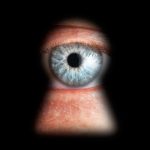
Amnesty International hit out at a court ruling that found communication surveillance carried out by UK secret services did not breach human rights. Amnesty UK and Privacy International brought the case to court following revelations by Edward Snowden that showed GCHQ (UK secret services) and the NSA had been spying on people by monitoring their correspondence.
But a panel of judges found that the actions of GCHQ do not contravene the European Convention of Human Rights. Amnesty said the result was "disappointing if unsurprising" and indicated that it will appeal at the European Court of Human Rights in Strasbourg.
Recent Headlines
Most Commented Stories
BetaNews, your source for breaking tech news, reviews, and in-depth reporting since 1998.
Regional iGaming Content
© 1998-2025 BetaNews, Inc. All Rights Reserved. About Us - Privacy Policy - Cookie Policy - Sitemap.